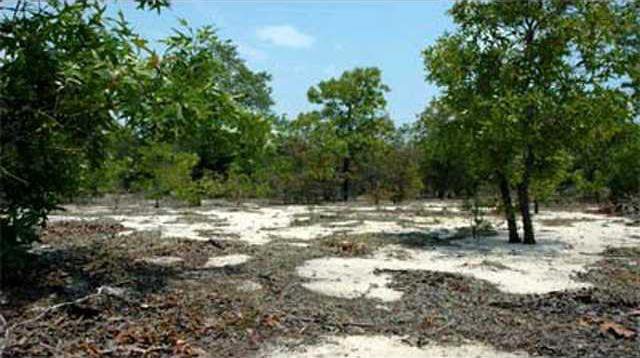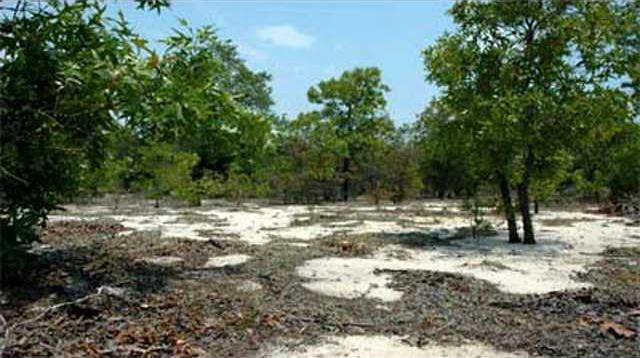SOCIAL CIRCLE — Listed by nature columnist Charles Seabrook as No. 10 on the list of Georgia natural wonders to see before you die, the Ohoopee Dunes Natural Area in Emanuel County has long been considered a biodiversity hotspot by biologists.
Now, a new grant will help others see it the same way.
Announced at the Pine Tree Festival in Swainsboro earlier this month, the $150,000 grant from the Recreational Trails Program and a match by project partners will provide for habitat restoration, low-impact trails, educational signs and better accessibility to land and water features at the natural area.
"The funny thing is all this came about because of a complaint," said Mincy Moffett, a wildlife biologist with the Georgia Department of Natural Resources. "People were asking, ‘Why isn’t the state managing the place better?’ assuming it was a state park. But it’s not a state park. It is a natural area, designed to protect a very special and rare geologic and ecologic feature.
"Hopefully, this grant and the educational signage we put up will show people the kind of treasure they have right in their backyards."
Part of the project, which is scheduled to begin later this year, will include adding a small parking lot to improve access to the McLeod Bridge Tract. Educational signs posted on a 1.8-mile interpretative trail will tell about the area’s natural history, ecological significance and related restoration efforts. Plans also include an observation deck overlooking a sand hill pond.
Another area slated for work is the Hall’s Bridge Tract, where a primitive boat ramp will be rebuilt to allow for larger watercraft and a small parking lot will be improved. The hope is this put-in/takeout point will become part of the existing network of blue trails in Georgia.
"Imagine if you could put in a canoe here in the Little Ohoopee River and paddle all the way down the Altamaha River," Moffett said. "Now that would be a great adventure."
Bill Rogers Jr., president of the Swainsboro/Emanuel County Chamber of Commerce, said the chamber is "very excited to have played a small part in this announcement."
"The observation deck, interpretive trail and primitive boat ramp should give naturalists and tourists a definitive reason to visit Swainsboro and Emanuel County," Rogers said. "Those dollars generated in our community by visitors to the Ohoopee Dunes should benefit us in a number of ways."
Ohoopee Dunes is one of Georgia’s most significant natural communities and floristic areas. The area comprises three tracts in southwestern Emanuel County. The DNR also cooperates in managing an adjacent tract owned by The Nature Conservancy and another nearby tract owned by the U.S. Fish and Wildlife Service. Together, these five conservation lands, arranged in an archipelago-like fashion along the eastern boundary of the upper Little Ohoopee River, encompass nearly 3,000 acres.
The central topographic feature of the tracts is a spine or ridge of ancient Kershaw sand dunes known as riverine sandhills. The natural area has several natural communities, ranging from dry (xeric) dunes and longleaf pine forests to moist hardwood hammocks and river floodplains.
Altogether, this area contains nine legally protected plant/animal species, and more than 10 others of conservation-concern. More than a dozen other rare and protected species are known to occur nearby within Emanuel.
Georgians can help conserve unique places like Ohoopee Dunes and other nongame wildlife, native plants and natural habitats through buying a wildlife license plate featuring a bald eagle or a ruby-throated hummingbird. They can also donate to the Georgia Wildlife Conservation Fund directly or through the state income tax checkoff. These programs are vital to the Wildlife Resources Division’s Nongame Conservation Section, which receives no state funds for its mission to help conserve wildlife not legally hunted, fished for or trapped, as well as rare plants and natural habitats in Georgia.

